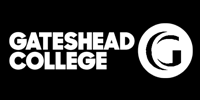Financial Armageddon?
Another blog post from DU Member Digital Business Coach.
As the lockdown begins to ease and we apply the sometimes confusing new measures into our daily lives, out thoughts must turn to what is waiting for us.
“Experts” predict unemployment will reach over 10 million, retail will be consigned to the history books and unless social distancing is removed, the travel and entertainment industries may well follow. I recently read a blog from a favourite author of mine who gave a possibly dystopian view of the future, describing a high street without shops but with residential property intertwined with the occasional coffee house. A new normal where working at home is standard with only occasional trips into an “office” – leading to a welcome reduction in road pollution. A huge drop in demand for air and rail travel and a further explosion in the number of cyclists. The resultant drop [continuing drop] in demand for oil will change the power landscape considerably.
Time will tell.
The last decade was one of austerity and BREXIT. What will the next 10 years be about, I wonder?
Yale University fellow Stephen Roach predicts the US $ will crash. This reserve currency of the world has been under threat politically for some time but Roach believes the worst is to come. His views may be deemed political as he blames the current White House incumbent for isolation/protectionism policies which will result in the sharpest squeeze in US living standards since the 1930s.
A news report yesterday predicted the UK might suffer most.
There are plenty of counter opinions of course. Who do we believe? I have always had a huge mistrust of the media – until this year. The coverage – 24/7 – of the pandemic has been scurrilous [in my opinion] with career focused journalists seizing the opportunity with both hands to frighten many back to the stone age. Like many of us I switched off some time ago and get my information elsewhere. One source continues to bemoan the truly excessive money printing in the US and though hopefully – as is the case in many other countries – hyper inflation will not result. Speculation is growing, however as to the very real and often misunderstood threat of deflation.
The red tops are now talking about the likelihood of negative bank deposit rates. Knew they’d get there eventually. We already know of the first negative yield Gilt issued in May and of the 100s of German banks [and now other countries] paying negative rates to their savings customers. Our own Bank of England is preparing for a similar situation. In the UK the average instant access account pays 0.21%. A one year fixed rate will reward you with a mighty 0.6%. It may be the banks are hoping nobody would actually notice…
There are now more than 9 million people furloughed. The cost is adding to our nations already unmanageable debt. This – together with the billions of Government supported business rescue loans – must be dealt with. Or rather, repaid. But how? It will be politically difficult to raise direct taxes so what other options are there? The recovery needs to start soon and be fast. The PM is to speak on the subject in the next few days.
The housing market has, traditionally been a barometer to the nation’s financial health. News reaches me of a 42% rise in lawyers receiving divorce instructions in the first 6 weeks of lockdown. If the average house price [source: Nationwide] is £243,809 then the additional 38,300 divorcing couples will see an increase of £9.34 billion in property coming on to the market. Estate agents will be excited. But what of demand for these properties?
How many furloughed employees will actually return to work? How many that do will have the confidence of knowing their jobs are safe and that they can risk buying a new home? How many lenders – acutely aware of the economics – will gladly provide mortgages? If inflation increases – as is anticipated in certain quarters – so will interest rates. After all, they are at 0.1% now and can only go one way.
If only we did not have to worry about all of this. If only there as a system in place which could protect the value of our money and savings.
There is.
What were you doing on 21 May? One person moved $400,000 into digital or crypto currency. A bank would typically charge 3% or in this case, $12,000.
The actual cost of the transfer was $2.50.
How can the banks compete with this? The answer is, they can’t.
So how is this possible? Why would someone buy so much crypto currency? Was it an institution buying it? Which of the 5,000 digital currencies was bought? Why did the US Government decide to class digital currency as “property” and tax it under capital gains rules? Why are many of the world’s Governments planning to launch their own state backed digital currencies?
What impact will FaceBook’s launch of their own digital currency have initially on the 2/5 of the world denied banking facilities and then on everyone else?
The media will continue to try to prevent you from knowing all about this. But the secret is out. Find out for yourself. Follow us. Talk to us. We look forward to hearing from you.
Address
Coronation House, 65 Quayside, Newcastle Upon Tyne, NE1 3DE
Telephone
07955289085
Connect with Generator
© Generator 2025 - All rights reserved.
Delivered with Cargo Creative




















